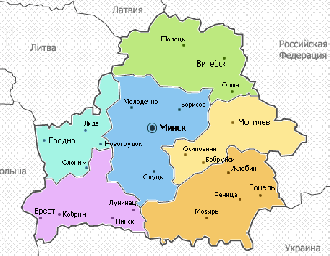Miraslau Kobasa: Local authorities don’t have their own development politics

Local authorities in Belarus do not make significant decisions when it comes to the questions of regional development.
This opinion shared in the talk with the EuroBelarus Information Service the chairman of the Enlightenment Public Association “Lew Sapieha Foundation” Miraslau Kobasa.
“Local authorities do not have their own development politics. Decision-making from above is the essence of the chain of command. Well, at least the most important decisions are taken at the governmental and presidential level”, - he noted.
Government programs that concern regional development are adopted at the national level in Belarus. And though some local peculiarities of this or that region are taken into consideration, one cannot say that regional authorities are making some weighty decisions by themselves, believes the interlocutor.
Miraslau Kobasa evaluates the influence of the leaders of the local executive committees as almost unlimited when it comes to the regional concerns. But when we talk about the influence on the government politics, then their vote has bigger advisory power than the decisive one.
Much depends on the personality of the leader of the executive committee. “It is hard to say who takes the lead and who encloses the places as for the influence, but what I am convinced in is that in this sense they do have differences”, - noticed the expert.
Life according to the orders from the center
The problems of regional development in Belarus are to a large degree connected with the centralization of administration. Miraslau Kobasa suggested comparing our situation with that of the European countries. “State power and local government are completely isolated there; they have different powers and everyone is busy with his own business, - he told. – But according to the law, we also have certain division on the regional councils and regional executive committees. But everyone understands that it is executive committee that plays an incomparably greater role”.
Representative bodies in Belarus do not have serious influence on the regional politics. Moreover, they are independent financially. “In 2012 55 per cent of the money from the permanent country budget has run through regions to the districts. But nevertheless, the decision for allocation of this money were made from the center”, - noted the interlocutor of “EuroBelarus”.
In these conditions officials who can make such decisions are dependent on the superior bodies, not the citizens. “With such system the person will never be the center of decision, as the officials are not dependent on common people”, - highlighted Miraslau Kobasa.
He believes that local authorities in Belarus do not feel as masters of the situation at their territory. “No initiative comes from there. Moreover, they are afraid to be initiative, as initiative can be punished”, - said the expert.
Of course, centralized system has certain benefits, notes the interlocutor: “For instance, when you need to improve the situation right away. But it can work for some time only; it cannot last for 20 years – it feels like some military situation!”
Administrative reform has started without being noticed
But does Belarus need administrative reform at all?
Miraslau Kobasa believes that for the administrative reform certain conditions should be shaped. “We will have to change the administrative and territorial division anyway. Basically, it is being changed now. From 2006 more than a hundred administrative-territorial units have disappeared, mainly – rural councils”, - told the expert.
The enlargement of the rural councils happens due to the outflow of people from villages. So the authorities carry out unification of councils in order for the executive system not to bring such losses.
Together with it, as the expert notes, rural councils have to be enlarged even more: “When it comes to reforming, then the regions could be left; but the districts and the rural level of government has to be united in one”.
Experts from “Lew Sapieha Foundation” believe that the best step to take will be transition from the three-level to two-level system of management. Instead of today’s 118 districts, 12 towns of regional subordination and 1400 units of primary level, we will have to appear with approximately 200 units which make up average between districts and rural councils.
Miraslau Kobasa explained this approach by the fact that today rural councils are not making any significant decisions and are controlling about 1 per cent of the consolidated country budget. “And if they do nothing, then what do we need these structures for?” –the expert asked the question that doesn’t have to be answered.
-
03.01
-
07.10
-
22.09
-
17.08
-
12.08
-
30.09








































